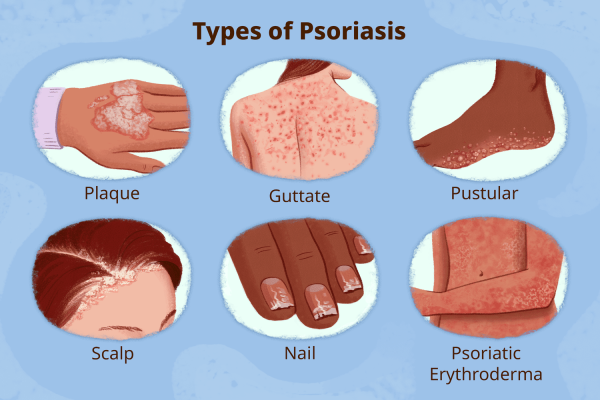| Psoriasis is caused by an interplay of genetic predisposition and environmental triggers that accelerate the life cycle of skin cells. This rapid cell turnover leads to a buildup of thick, scaly skin patches. While the exact genes involved and the specific triggers vary among individuals, factors such as infections, stress, injuries to the skin, certain medications, and hormonal changes can all contribute to the onset or exacerbation of psoriasis symptoms. Ultimately, it's an autoimmune disease where the immune system mistakenly attacks healthy skin cells. 
Psoriasis is caused by a combination of genetic and environmental factors that trigger an overactive immune response. Specifically: - Genetics: A person's genetic makeup plays a significant role. Several genes have been identified that increase the risk of developing psoriasis. However, having these genes doesn't guarantee that someone will develop the condition.
- Immune System Dysfunction: The immune system mistakenly attacks healthy skin cells, causing them to grow and reproduce at an abnormally rapid rate. This rapid cell turnover leads to the buildup of thick, scaly skin patches characteristic of psoriasis.
- Environmental Triggers: While genetics provide the predisposition, environmental factors can act as triggers to activate the disease. These triggers can vary greatly from person to person and include:
- Infections: Strep throat and other bacterial or viral infections.
- Stress: Physical or emotional stress can exacerbate psoriasis symptoms.
- Injuries to the skin: Cuts, scrapes, sunburn, or even insect bites can cause a flare-up at the site of the injury (the Koebner phenomenon).
- Medications: Certain medications can trigger or worsen psoriasis.
- Smoking: Smoking is a well-established risk factor.
- Alcohol: Excessive alcohol consumption.
- Climate: Cold, dry weather can worsen symptoms.
It's important to note that the exact mechanism by which these factors interact to cause psoriasis is still not fully understood. Research continues to unravel the complexities of this chronic autoimmune disease.
Tags: Guttate Nail Plaque Psoriasis Psoriatic Erythorderma Pustular Scalp 건선 서라이어시스  
|  1,283
1,283  0
0  0
0  3350
3350 